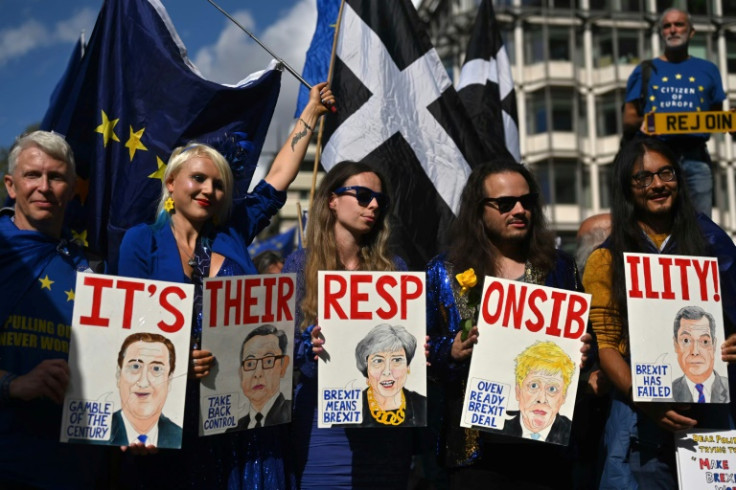
As part of his report to the Treasury Committee, David Ramsden has highlighted the financial impacts of Brexit and the political uncertainty that it has generated throughout the UK.
Ramsden, the British Economist and Deputy Governor of the Bank of England said that Brexit has ultimately "chilled" investment levels amid the ongoing aftermath of the COVID-19 pandemic.
Compared to other leading nations, the decreased investment levels in Britain have contributed to a lower "speed limit" for the UK economy, according to the Bank's Deputy Governor for Markets and Banking.
"It's hard to conclude otherwise, that the decision to leave the EU – that may have had lots of goods reasons for it – but that it has chilled business investment," he said.
Addressing a group of MPs at the Commons Treasury Committee, Ramsden declared that since the final months of 2016, when the Brexit referendum was being held, business investments have only increased by six per cent in real terms.
Business investment is a key factor that benefits economic growth, the Bank's Deputy Governor explained, going on to add: "That's less than one per cent a year. Over that time, US business investment has gone up by over 25 per cent."
"You can see a break in the trend for UK business investment in 2016. It had been going up since the global financial crisis and then it flattened off from 2016 onwards," he added.
After Ramsden's statement to MPs this week, Chancellor Jeremy Hunt sparked wider controversies surrounding the negative impacts of Brexit on the British economy in his Autumn Statement.
On Wednesday 22 November, Hunt said that the UK will see the "biggest tax cut on work since the 1980s" to assist the public with tackling the current cost of living crisis.
The cost of living crisis, sourced by the effects of both Brexit and the coronavirus lockdown in 2020, has added to the number of people living below the poverty bracket in the UK.
According to the government's annual 'Households Below Average Income' report, more than four million children across the nation, have been living in poverty since 2021.
After Hunt unveiled the key strategies included in his Autumn Statement, the European Movement UK criticised the Chancellor, saying: "No amount of personal or business tax cuts will undo the damage that Brexit has done – and continues to do – to our economy."
According to the group: "The true extent of the economic damage of Brexit will take 15 years to fully materialise. The National Institute of Economic and Social Research predicts that by 2035 the economy will be between 5-6% smaller than it would be if we had not left the European Union."
Pointing the finger at the right-wing Conservative Party, the European Movement UK recognised that "if it were not for Brexit our economy would be much stronger than the economic picture presented by the Chancellor in the autumn statement".
The Bank's Deputy Governor also noted that the government have made little progress towards reducing the rate of inflation in recent years.
"Ideally you want low and stable inflation but also you want certainty around where fiscal policy is going, and certainty about what the kind of relationships your economy is going to have," he advised.
With food, fuel and product prices on the up, in regard to business investment levels, Ramsden said: "We, therefore, think the speed limit the economy can grow at without triggering inflation is lower."
Towards the end of his speech, the British Economist warned the financial sector that markets have been "underestimating" the current risk of inflation that has been continuing to operate at unexpectedly higher levels.
"We are concerned about the potential persistence of inflation as we go through the remainder of the journey down to two per cent... The risks are on the upside," Ramsden concluded.







